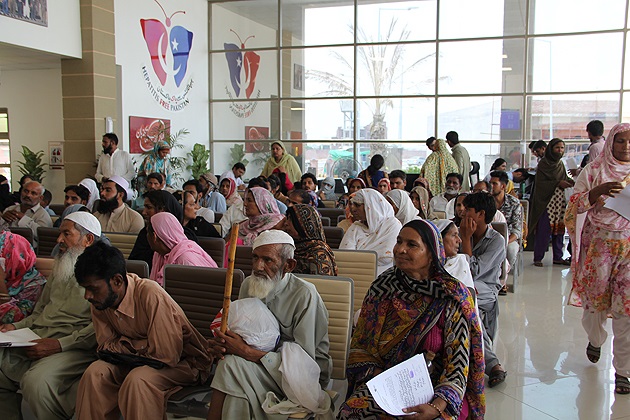Landmark Advancements in Hepatitis C Testing: WHO’s New Self-Test
The World Health Organization (WHO) has made a significant stride in the battle against hepatitis C by prequalifying its inaugural self-test for the hepatitis C virus (HCV). This groundbreaking development is expected to enhance access to testing and improve diagnosis capabilities, thereby accelerating global initiatives aimed at eradicating hepatitis C.
Introducing the OraQuick HCV Self-Test
The newly approved product, named OraQuick HCV self-test, is produced by OraSure Technologies. It builds upon the previously prequalified OraQuick® HCV Rapid Antibody Test that received WHO approval for professional application back in 2017. The self-testing kit has been specifically tailored for lay users, featuring all necessary components for individuals to conduct their own testing.
Enhancing Testing Services with Self-Testing Recommendations
In 2021, WHO endorsed HCV self-testing (HCVST) as a supplementary approach to existing testing services across nations. The recommendation was grounded in compelling evidence showcasing how such self-tests can broaden service access and bolster uptake among individuals who might not otherwise engage in testing.
A Shift Towards Empowerment and Autonomy
Implementation projects at the national level have demonstrated remarkable acceptance and practicality of HCVSTs. Funded largely by Unitaid, these initiatives empower individuals through choice and autonomy while facilitating access to stigma-free healthcare resources.
A Dire Call to Action: Current Statistics on Hepatitis C
“Every day, approximately 3,500 lives are claimed by viral hepatitis,” notes Dr. Meg Doherty, WHO Director of the Department of Global HIV, Hepatitis and STI Programmes. “Among the estimated 50 million individuals infected with hepatitis C globally, only 36% have received an accurate diagnosis while merely 20% have accessed curative treatment as of late 2022.” This new addition to WHO’s list of prequalified products represents a reliable means to broaden HCV diagnostic reach and treatment accessibility—a crucial step towards fulfilling global aspirations related to hepatitis C elimination.
The Role of WHOs Prequalification Programme
The WHO’s Prequalification programme for In Vitro Diagnostics (IVDs) meticulously evaluates various tests designed for detecting antibodies linked with HCV. By scrutinizing these diagnostics against stringent quality benchmarks focusing on safety and efficacy performance standards, this programme plays an instrumental role in aiding countries toward achieving high-quality diagnostics oversight along with effective treatment tracking.
A Focus on Low-Resource Settings
“Accessing affordable and safe self-testing options is vital,” asserts Dr. Rogério Gaspar from WHO’s Department of Regulation and Prequalification. “The availability of this WHOs approved product will significantly aid low- and middle-income countries as they strive towards meeting their target—90% diagnosis rate among those living with HCV.” This achievement signifies substantial progress toward improving availability concerning quality-assured health commodities aimed at populations residing within lower-income environments.
A Pledge Towards Ongoing Support
The World Health Organization remains committed not just towards evaluating further innovations in HCV self-testing but also actively participating in community-based initiatives that expand accessible solutions globally.






